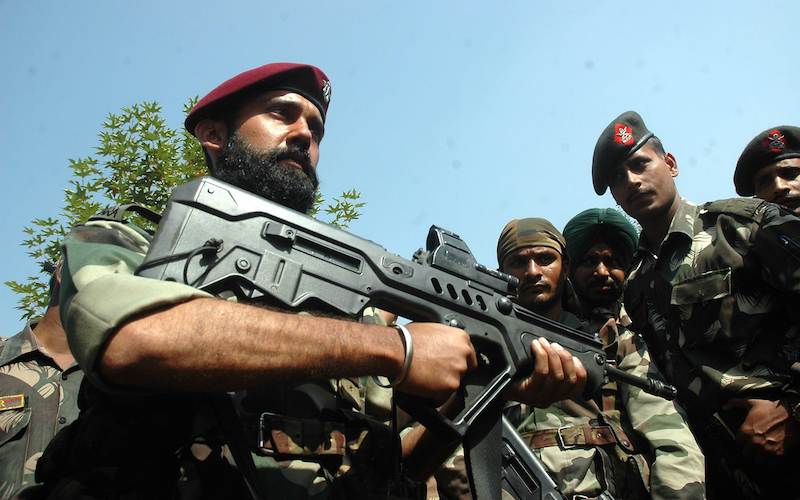
India’s Foreign Policy Under Modi: Part 2
I have already described the continuity that pervades Indian foreign policy decision-making. Modi’s worldviews do not represent a major break with the past. Aside from Bangladesh and one or two others, India is the only relatively stable country in an unstable region that stretches from the Horn of Africa to South East Asia. Although there has been much speculation about Narendra Modi’s foreign policy Modi himself has dismissed such talk as conjecture. Foreign policy has traditionally never been an issue of importance for the Indian electorate which is why Indian political parties devote minimal attention to the issue.
The few occasions on which Modi has addressed foreign policy issues his views have been remarkably consistent with the traditional Indian approach to foreign policy. Modi has repeatedly stated how foreign policy begins at home and requires a strong central government. Keenly aware of the important role played by commercial interests in shaping India’s foreign policy he has stated that, “I believe a strong economy is the driver of an effective foreign policy…we have to put our house in order so that the world is attracted to us.”
There are two things to be taken away from this statement. Firstly, Indian economic interests are the organizing principles for the formulation of Indian foreign policy. Secondly, the first port of call for the Indian security establishment is internal security threats to the nation. The appointments to critical posts in the government reflect these priorities as well.
The BJP manifesto believed to have been personally vetted by Modi does not devote much space to foreign policy. It explicitly states that the BJP intends to create a ‘web of alliances to further our interests’ a clear departure from India’s long cherished notions of non-alignment and strategic autonomy.
What exactly lies in the national interest however hasn’t been expounded upon not even in the traditional rhetorical terms. Another statement states that it does not intend to be led by big power interests and instead shall choose to engage proactively on its own with other nations however reflects the age old Indian concern with maintaining strategic autonomy. Such potentially contradictory statements are indicative of the wriggle room Modi has created for his government. Given the lack of foreign policy commitments in the run up to Modi’s ascension to power such a framing gives him just the sort of flexibility he needs. In an era where the flag follows the trade this may very well have been the smart thing to do in the run up to elections.
However, now that he is in power, not articulating a clear vision of India’s strategic interests is not acceptable. A resurgent India looking to base its foreign policy on predominantly economic considerations must acknowledge the fact that its brightest economic prospects lie Eastwards and not in the West. This is a fact acknowledged by America’s pivot to the Asia Pacific region where it has recognized that Asia is where the future engines of the global economy lie. The US rebalance to the Asia Pacific has stalled as it responds to Russian aggression in Ukraine and turmoil in the Middle East. Coupled with US financial difficulties on the domestic front and a war weary population the US’s regional allies have grown uneasy about its commitment. The United States has repeatedly described India as a ‘linchpin’ in its pivot expressing hope India would act as a ‘regional anchor.’ With US support for greater Indian involvement and even East Asian nations keen for India to play larger role in Indian affairs the environment is optimal for India to make a foray.
Whether India has the capabilities or even the intentions to do so though is an entirely different matter. Indo-US relations reached a highpoint beginning with Bill Clinton & culminating with George W Bush when various nuclear related agreements were signed. President Obama’s tenure though has seen Indo-US relations grow frosty. The treatment of the Indian diplomat Devyani Khobragade and the US consistent refusal to grant Modi a visa when he was a Chief Minister are merely symptomatic of the deeper malaise gripping Indo-US ties. That said Modi, pragmatist that he is, would not let such blips affect his conduct with the United States. India may according to some analysts prefer a US dominated international order over a Chinese one. Even proponents of this view though would find themselves hard pressed to justify why Washington won’t relegate Indian interests to the trash bin in pursuit of their concern of a stable Afghanistan (which would entail closer US ties with Pakistan). While India has pursued its Look East policy since the early 1990’s, whether it is willing to put its money where its mouth is remains to be seen.
Though China is widely perceived to be India’s predominant strategic competitor, Modi’s pre-election tough talk on China has to be taken with a grain of salt. It is clear that the Chinese have high hopes for Modi; Modi himself aims to kick start India’s economy beginning with a massive Indian infrastructure overhaul even as the Chinese are seeking to direct their investments into high yielding emerging markets. Combine all these trends with the present fact that China is India’s largest trading partner and it becomes evident that there is a strong case for Indo-China cooperation.
With China in a historically rare situation of finding itself unthreatened via land it is finally able to concentrate on developing its naval, air and missile forces with the increasing United States presence in the Asia Pacific clearly in its mind. As James R Holmes has noted for China to inflame its Himalayan territorial quarrel with India would be the height of folly forcing it to redirect its resources to territorial defence. India has already raised a Mountain Strike Corps created specifically for employment against China.
Depending on the variety of internal balancing (armed forces centric) measures and external balancing (alliances) Modi undertakes India may well establish a mutually profitable, stable equilibrium with the Chinese giant. To what extent Modi can push for such an arrangement to involve China restraining Pakistan will be Modi’s mark of genius. Pakistan has systematically bled India with a thousand cuts utilizing asymmetrical means behind the cover of its nuclear weapons. A repeat of 26/11 is unlikely to be met with a response as muted as that of the UPA if Modi’s statements and the past BJP responses to terror attacks are anything to go by.
The Indo-Japanese relationship, one that the Japanese Prime Minister Shinzo Abe has called the most promising bilateral relationship anywhere in the world holds immense promise. Modi and Abe’s well documented personal friendship possess more common ground in their shared apprehensions of China’s rise. This relationship though is unlikely to assume military dimensions owing to the complex Indo-Chinese relationship unless China forces India’s hand.
Closer to home Modi has stressed upon the importance of sea lanes to drive India’s economic growth. In such a context India’s engagement with middle powers such as Australia needs to be closely watched. Similarly, the impending US withdrawal from Afghanistan creates highly interesting and challenging opportunities for further Iran-Indian collaboration in addition to their existing economic ties.
Much has been made of Modi’s decision to invite the heads of SAARC states during his investiture and the fact that by 2014 every SAARC nation will have had democratic elections with the exception of Sri Lanka. The desire to pursue the goal of building a friendly near abroad at a time when the entire region is experiencing a fresh start is indeed commendable. However the Modi regime would do well to consider the words of the former foreign secretary of India Kanwal Sibal who highlights the drawbacks of the soft approach India has adopted vis-a-vis its neighbours for the better part of the past 65 years. While there have been instances where India has been perceived as an overbearing bully preferential treatment needs to be made conditional to reciprocation at the least. The BJP has been critical of the Congress for allowing India’s influence to wane regionally. How exactly the BJP seeks to ensure its policies do not have a similar effect remains an open question.
Intelligent integration into the world economic order is critical for India to acquire the economic, political and strategic capabilities that will allow it to break out of the subcontinent and become a great power. China whose economic might has accentuated its global profile even as Russia’s economic decline has heavily impaired its global standing are clear examples of this reality. At the same time an overly networked power lacking hard power and the will to use it can expect not be taken seriously in the international community as the European Union’s helplessness against Russian aggression had demonstrated. So long as Narendra Modi strikes the correct balance between these two imperatives India may indeed rely on Modi’s promise of acche din aa rahe hain (Good days are approaching).

